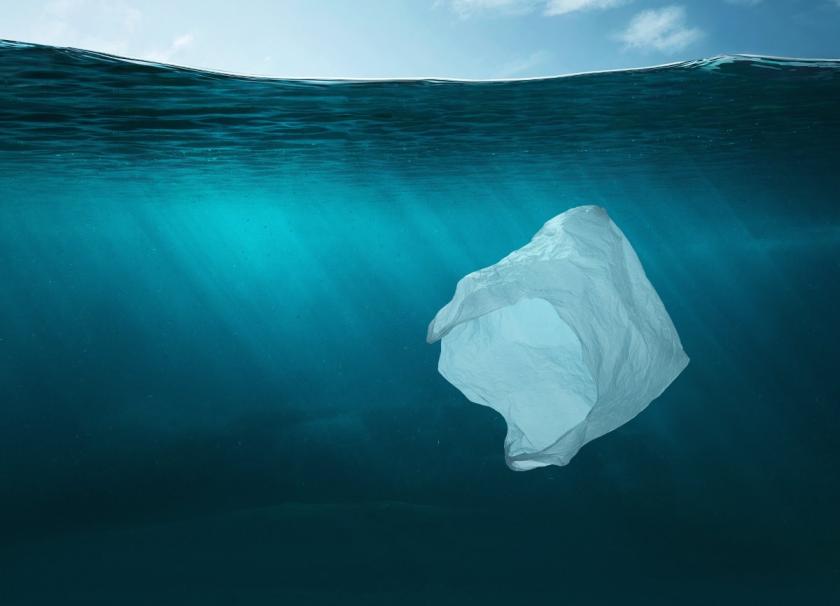
The state of plastics
Many Co-op owners and shoppers have shared their interest in reducing plastic usage in the store. From bioplastics, to compostable plastics to recycling options, the Ashland Food Co-op continues to research what works best as we move towards our goal of being a zero waste store. Here is where we stand.
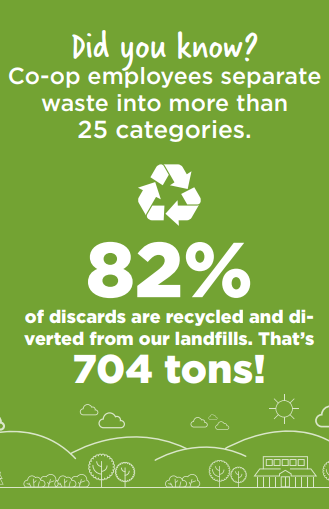
Right now, there is a trade-off in terms of food and plastic waste. Plastic is extraordinarily unique in its ability to preserve food and prevent spoilage and waste. But the trade-off is its very long lifespan.
Reducing plastic waste - by using alternative storage materials, or going package-free when possible - results in more food spoilage and waste, which can sometimes have a bigger ‘carbon footprint’ than plastic use alone.
The best way to summarize: as of March 2019, no perfect solution for plastic alternatives exist.
This isn't meant to make excuses for waste - as you may know, we already divert over 80% of our waste from the landfill. But it is important to know where things stand, and what some of the many decision-making factors are, that go into this debate about containers and plastic. Let’s break it down:
Bioplastics
Bioplastics often come from unsustainable sources - for example, monocropped GMO corn that could be used to feed people, or is grown on the other side of the country and requires a large carbon input to deliver.
As the name implies, bioplastics often have lifespans as long as petroleum plastics - they’re still plastic! The “end of life” assessment for bioplastics is not much better than petroleum plastics. For example, a single-use plastic fork made from GMO corn will still end up in the landfill.
Though there are recyclable and compostable bioplastics, they often require specialized machinery at waste disposal sites to be broken down. Our region does not currently have that infrastructure, and the additional carbon footprint to ship these materials elsewhere can quickly outweigh the ‘bio’ benefits.
The Co-op continues to explore options in this area: more readily compostable bioplastic bags are hitting the market which we will continue to test.
Alternatives to plastic
AFC has brought in cardboard packaging for some produce, like cherry tomatoes and strawberries. And yes, they are completely recyclable!
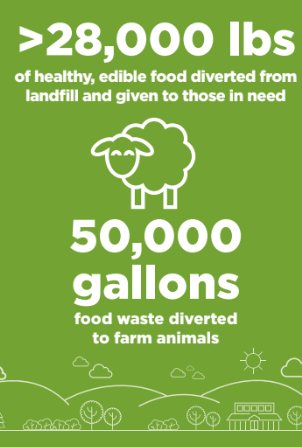
However, it can be difficult for customers to visually connect with the product - can you tell how juicy and ripe those strawberries are through the cardboard? Without that visual connection, a shopper may be hesitant to buy the product, inadvertently leading to more food waste (because the product stays on the shelf longer).
Cardboard also leads to more spoilage because of the lack of light and its ability to carry moisture (leading to molding).
Is generating more food waste an acceptable trade-off to having recyclable and compostable packaging? This is another instance where analyzing production inputs and requirements, instead of just ‘end-of-life’ issues for packaging, gives a better idea of the sustainability of a packaging type.
Plastics recycling
Many plastics are no longer being accepted by local waste management services. Generally, white, rigid plastics (example: yogurt containers) are still being recycled; clear, non-rigid plastics (soda bottles, salsa containers) are not. So buy smart!
Clamshells are a common area of concern. The Co-op is very lucky to be able to recycle plastic clamshells from products that were purchased at AFC. You can bring those clamshells back into the store for recycling. Even better, this recycling is more carbon neutral because the clamshells hitch a ride back to Eugene on existing truck routes (rather than a one-off transit run).
If you're purchasing greens, you can also bring your own container to fill from the bulk spinach and baby greens bins. Alternatively, OrganicGirl salad clamshells are made of 100% recycled plastic.
Our commitment
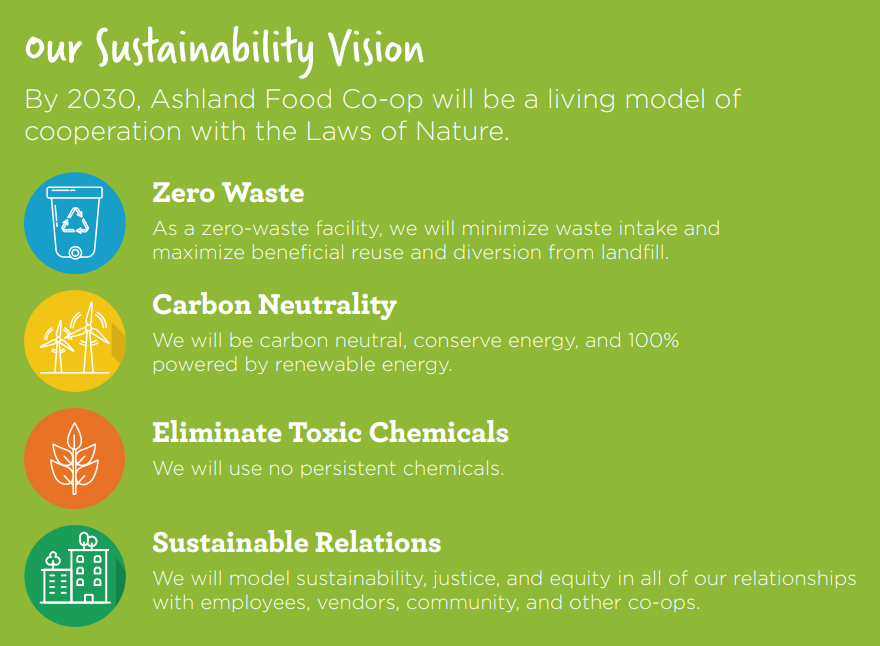
It’s easy to see that with the options available right now, there’s always a trade-off. In our own store and through the National Co-op Grocers network, we continue to look for a solution that is not petroleum-based, non-GMO, and that can be recycled or composted fully. When that solution arrives, we will be ready!
Right now, you should aim to reduce your overall plastic consumption when making purchasing decisions; choose reusable packaging when you do have to purchase plastic (clear salsa packages make great storage for leftovers); and choose recyclable plastic (white plastic and clamshells) if you think you’ll only get one use out of the packaging.
For some additional reading on the topic of plastics and packaging, check out this report put together by the Oregon Department of Environmental Quality.
More Co-op News
Wanted: Wormy Apples, Fallen Plums & Over Ripe Pears
Urban fruit is copious this time of year in the Rogue Valley. It’s hard, dare we say impossible, to make enough pies, cobblers, and salads to keep up with the backyard abundance.
So what do you do with all that unpicked fruit?
Instead of letting your pears, plums and apples go to waste, or to feed the deer, bring them to the Co-op for collection.
Apple Outlaw Cider, in collaboration with the local community, is setting out to create a one of a kind hard cider, dubbed “Apple Outlaw Community Cider”.
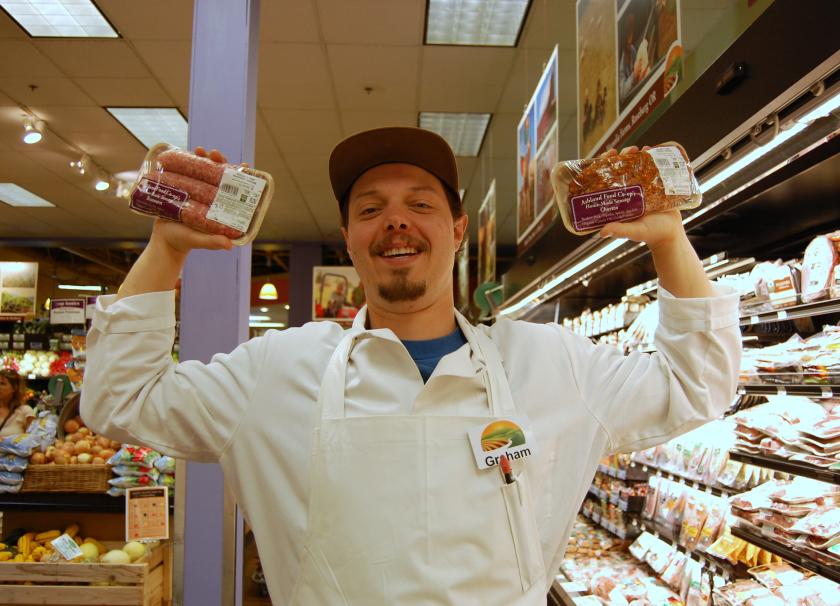
Fire Up The Grill
Break out of your dinner rut with something fast and juicy. The Meat Department staff share their go-to favorites to throw on the grill. Flame on, baby!
Brian Swift
Flat Iron is my favorite steak. So simple to cook. Just add salt, pepper, garlic, and cook it on a super hot grill. 5 minutes later you have an amazing steak.
Sam Roberts
TriTip marinated in our Kinders barbeque sauce, seared on both sides with a little pink in the middle, is what I really enjoy the most.
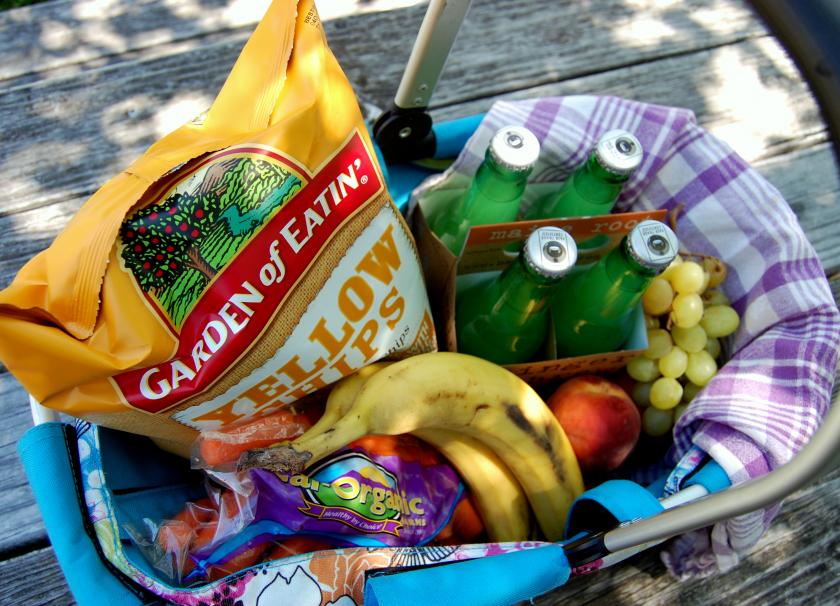
Summer Picnic Guide
Everyone loves a picnic. But some are better at organizing one than others. Make planning the perfect picnic a breeze with our easy picnic guide.

A Party for YOU
Each year we hold an Annual Meeting and Owner Picnic. This is our chance to catch up over a delightful picnic and most importantly update you on the recent year’s events and financials.
This year, we are changing things up a bit. The Annual Meeting and Owner Picnic will be more family friendly than ever before. We have a new menu designed to appeal to busy little (and big!) hands so you and your kiddos have time to enjoy one of our many family friendly activities.
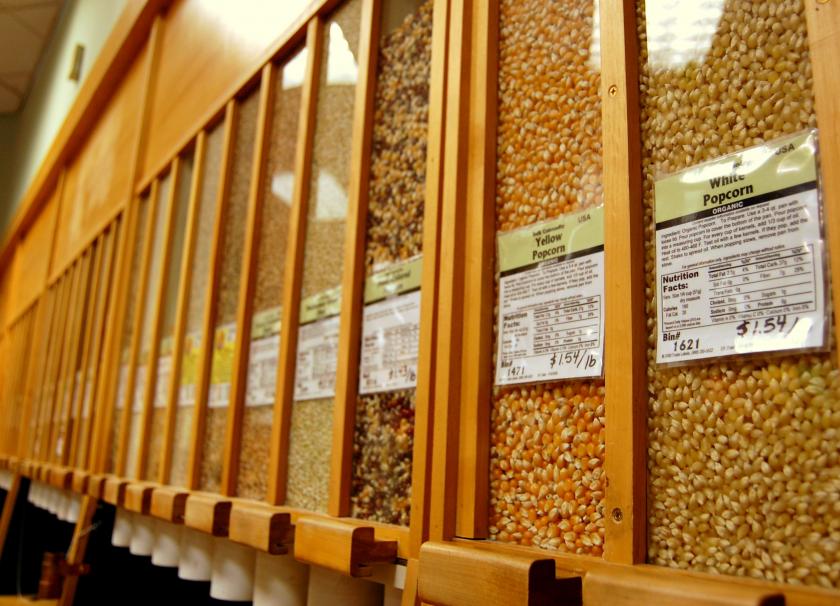
6 Reasons to Buy in Bulk
Bulk bins have been a staple at the Ashland Food Co-op since we opened our doors in 1972. For good reason too, buying in bulk is better. Better for your pocket book, better for the environment, and better for your belly. Here’s why.
6 Reasons to Buy in Bulk
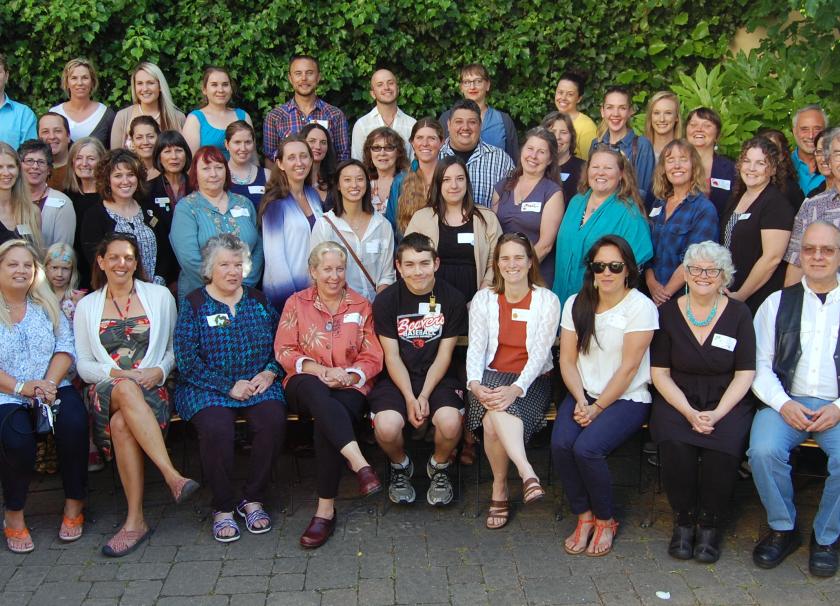
Co-op + Community = A Perfect Match
At the Co-op, we are all about community. After all, YOU are why we are here and providing healthy, organic food to the Rogue Valley.
As a cooperative enterprise, there are seven principles we follow. We use them as guidlines to put our values into practice. Principle 7, Concern for Community, affords us the opportunity to give back to local nonprofits that do so much good in this beautiful place we call home.
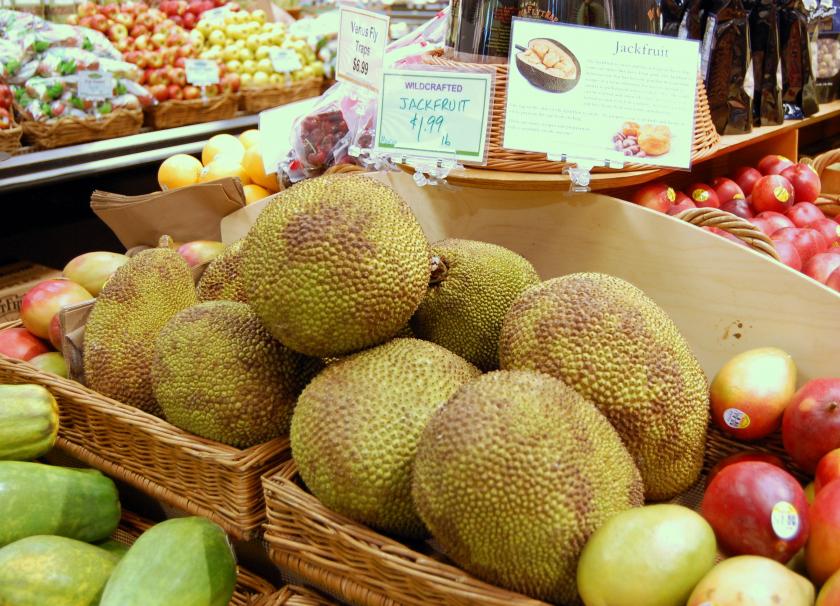
Jackfruit 101
You might have noticed a rather large, prickly fruit hanging out next to the apples, oranges, and papayas in the Produce Department. Meet the Jackfruit, the newest addition to the Produce Department. In case you don't know "jack" about Jackfruit, here is a crash course.
- The Jackfruit is native to South and Southeast Asia and is a close cousin of the fig.
-
The Co-op sources the fruit from Patagonia Orchards. Their fruit is grown in the tropical rainforest of Nayarit, Mexico.
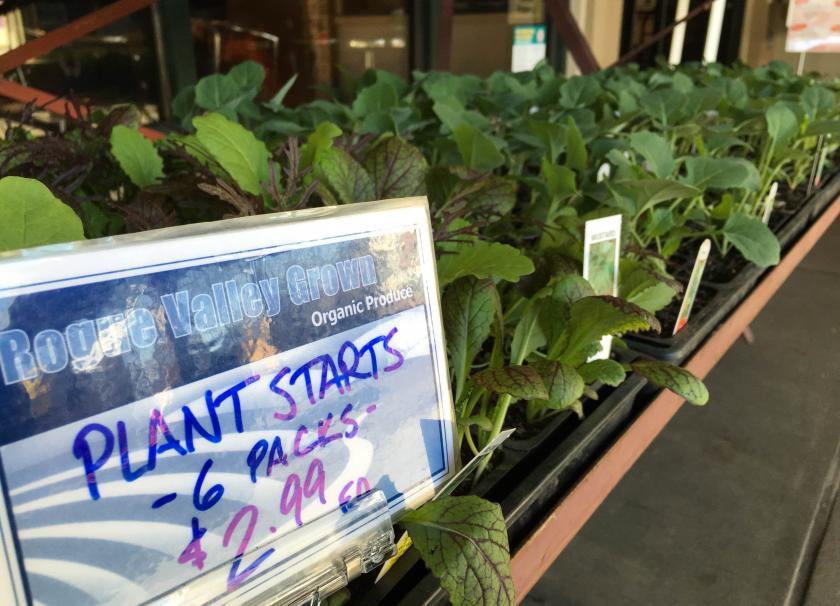
Get Your Garden On
This is one of our favorite times of the year. The sun is out and the days are longer, time to play in the dirt. Our Produce Staff share their favorite seeds and starts to help you get your garden going.
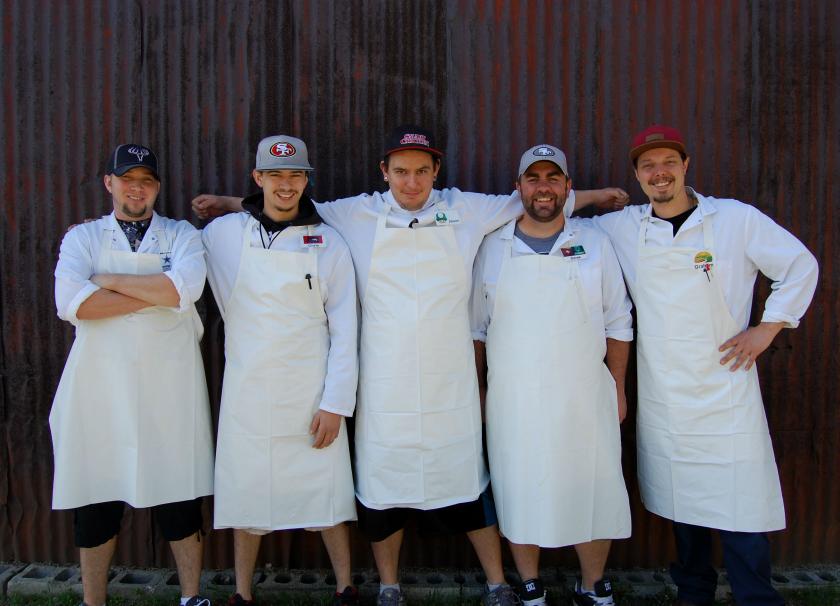
Meet the Meat Department
Welcome back to our Behind the Scenes blog series. So far you’ve meet the dynamic Produce and Deli teams. Next up, the department that is packed with protein, meet the Meat Department.
Did you know?
Rachel's Spring Produce Picks
Rachel Rose, Assistant Produce Manager, shares her spring produce picks.
Strawberries
Most people are surprised to know that early spring are two of the best months out of the year for tasty strawberries. The first batch out of California is usually so sweet and full of flavor that the rest of the year I often shy away from strawberries. They just don’t measure up to the fruit coming out early in the year.
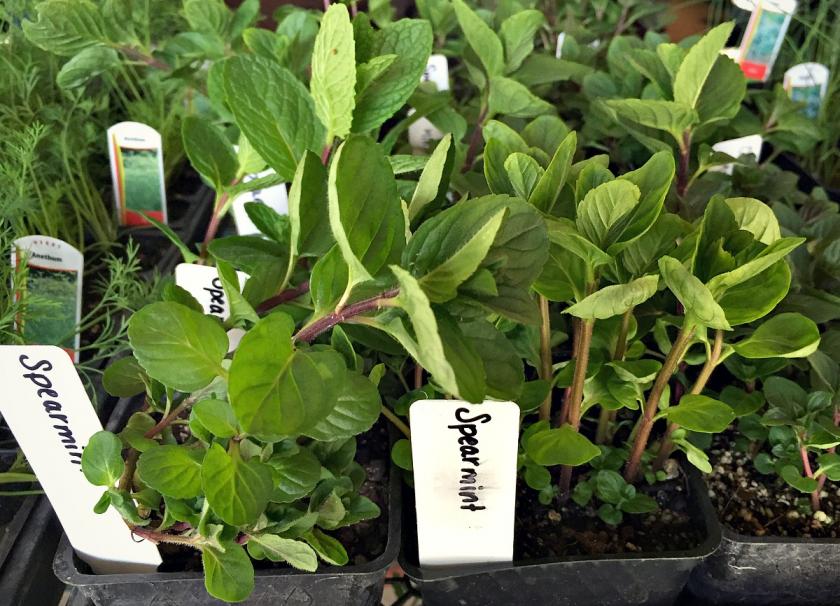
5 Edible Plants to Start in Your Garden Now
Spring is most definitely upon us, and we are lucky enough to live in Southern Oregon where the weather during this time is usually (ahem) co-operative enough to let us get some plants in the ground in between the hail storms and rainbows. There are actually many plants that do quite well in this time of transition, as they prefer the cooler temperatures that we get here this time of year, before the real heat sets in. Here are a few that we have right now at the Co-op, direct from local, organic farms. Plant these in your garden now for best results!
UPDATED Organic Raw Macadamia Nuts Recalled Because of Possible Health Risk
UPDATED 3/17/16
Ashland Food Co-Op of Ashland, Oregon issues the updated press release to clarify that we re-packed and sold Organic Raw Macadamia nuts in random weight bags at our retail store in Oregon only between January 5th, 2016 and February 4th, 2016. We do not have any internet sale or distribute affected product outside Oregon.
Garden of Life Raw Meal Recall
Garden of Life has issued a voluntary recall on all Raw Meal products shipped after August 15, 2015.
Please see the below link to Garden of Life’s blog for all lot numbers that they are recalling, as well as details of the recall.
Let Thy Food Be Thy Medicine
Rachel Rose, Assistant Produce Manager, shares her winter produce picks.
The cells in our bodies are all made using the building blocks that we provide in the food that we eat, the air that we breathe and the water we drink. If we want healthy bodies, feeding ourselves and our families the cleanest healthiest foods is a real good start. We are what we eat!
Burdock root
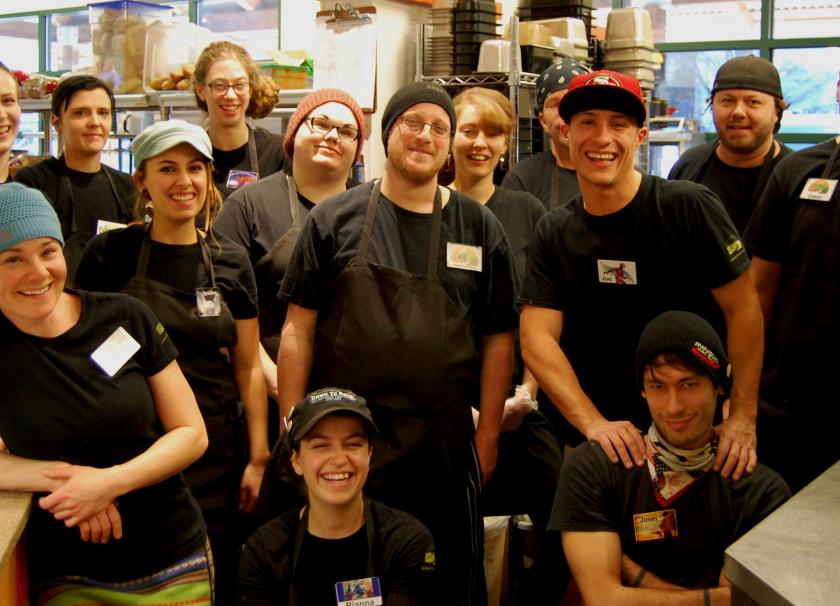
Behind the Scenes: The Deli
Welcome back to our Behind the Scenes blog series. We recently took you into the colorful world of Produce. Now we’d like to introduce you to the department that enters beast mode daily: the Deli.
Did you know?
